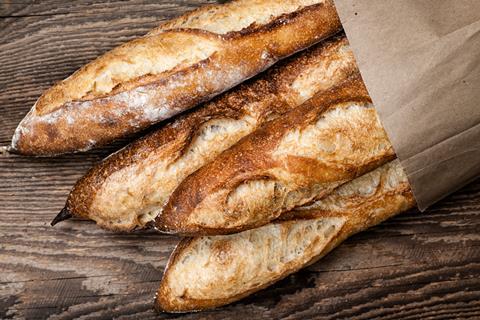
Artisanal French baguette baking has joined the ranks of knowledge and skills protected by the Unesco convention of Intangible Cultural Heritage.
The convention promotes the safeguarding of traditional craftsmanship and cultural practices shared from generation to generation, such as oral traditions, performing arts, social practices, rituals and festive events.
Following a successful application by French authorities, the ‘artisanal know-how and culture of baguette bread’ joins food practices recognised by the convention including the ‘the art of Neapolitan pizzaiuolo’, ‘truffle hunting and extraction in Italy’, ‘Kimchi-making in the Democratic People’s Republic of Korea’; and ‘Ceebu Jën, a culinary art of Senegal’.
The baguette is the most popular kind of bread consumed in France, and can trace its artisanal origins back to long loaves baked in the seventeenth century.
Its traditional production process comprises a series of stages: measuring/weighing and mixing the ingredients, kneading, first fermentation of the dough, division, relaxing, manual shaping, second fermentation, marking the dough with shallow cuts and baking.
In the application to Unesco, it was stated that the baguette differs from other loaves as it is composed of only four ingredients – flour, water, salt, leaven and/or yeast - from which the baker makes a unique baguette by working with the qualities of locally produced products, measuring and mixing, kneading, proving shaping and baking. The application pointed out that baguettes are baked throughout the day in small batches, with their recipe varying according to temperature and humidity.
“The baker’s skill and creativity make each baker’s baguette unique,” stated the application. “With the same ingredients, 50 bakers make 50 different baguettes.”
Having been granted heritage status for the baguette, French authorities said they now plan to create a vocational certificate (Certificat de Compétence Professionnelle) focused on the artisanal baguette. This short training course would be intended for people in long-term unemployment and would lead to a diploma.
Authorities also intend to launch a dedicated Open Bakehouse Day to help consumers understand the work and skill that goes into creating an artisanal baguette.
































No comments yet